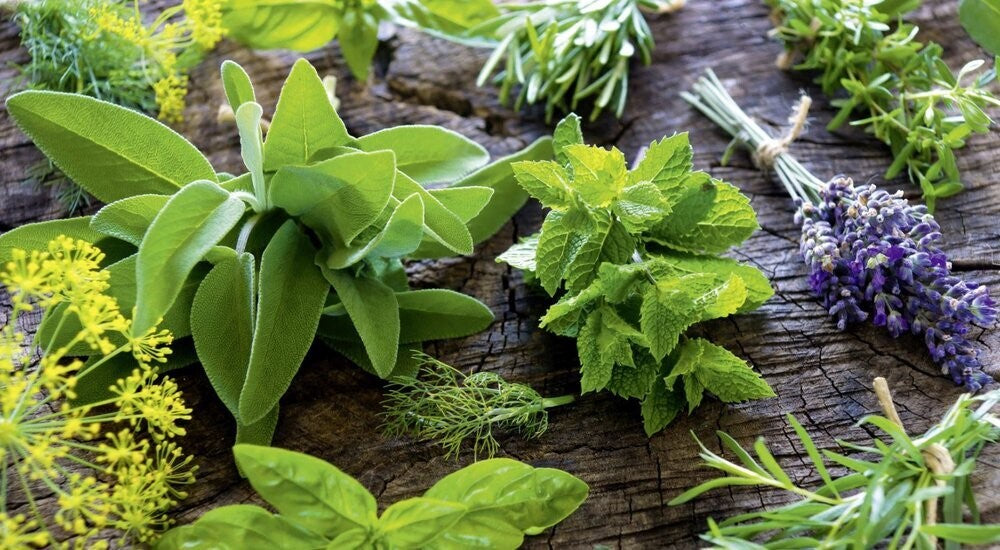
Top 5 Plants Having High Medicinal Benefits
Indian traditional medicine systems, or the Ayurveda, Siddha and Unani, have appeared in the Vedic texts between 2500 and 500 BC revolving around the idea of using the phytochemical properties of plants in treatment of various diseases. The oldest written evidence of medicinal plants’ usage for preparation of drugs has been found on a Sumerian clay slab from Nagpur, approximately 5000 years old. It comprised 12 recipes for drug preparation referring to over 250 various plants such as poppy, henbane and mandrake.
That being said, here are Top 5 Medicinal Plants which are power-packed with benefits and extremely easy to maintain at home:
1. About Piper Betle or Betel Leaf plant
Betel Leaf plant (piper betel) is a creeper grown in India. It belongs to the pepper family. Its waxy green, heart-shaped leaves are used for medicinal and culinary purposes. When crushed, it exudes cool peppery scent. It’s used in making a famous dessert called ‘Paan’ which is chewed with betel nut as a mouth freshener. This mildly stimulant herb is popular in the whole South Asia (Indian subcontinent), Thailand, Indonesia, and Vietnam
Top 5 Benefits of Betel Leaf Plant
The medicinal benefits of Betel Leaf plant is what makes it a very popular kitchen or balcony plant for every household in India. Here we list down the top 5 benefits of Betel Leaf plants for you.
- Helps in Pain Relief:Betel leaf is an excellent analgesic that offers instant relief from pain. It can be used in alleviating pain caused due to cuts, bruises, rashes. Make a paste with tender betel leaves and apply on the affected area. Betel leaf juice provides relief from internal pains in the body.
- Used as Antioxidant:Betel leaves are a powerhouse of antioxidants which clear radicals from the body. It restores normal PH levels in the body and helps with an upset stomach. Ayurveda widely recommends eating betel leaves for relief from constipation.
- Prevents Gastric Issues:Ever wondered why chew on betel leaf after a good meal? It is recommended because of its carminative, intestinal, anti-flatulent and for those properties that help in protecting the gut. Betel leaves increase metabolism triggering circulation and stimulating the intestines to absorb vital vitamins and nutrients.
- Helps in Cough & Cold:Betel leaf widely helps in treating issues related to cough and cold. It is an excellent cure for those suffering from chest, lung congestion and asthma.
- Antiseptic Properties:Betel leaves have amazing antiseptic properties as they are rich in polyphenols especially chavicol offering dual protection from germs. It is also used extensively in treating arthritis and orchitis.
How to take care of the Betel Leaf Plant?
The plant thrives well in hot and humid environments in partial shade although the plant needs regular watering. Regular pruning should be done to encourage new leaf growth and sweet and tender leaves. Keep the plant indoors in winters when the temperature falls below 7℃ because it becomes dormant in cold weather and sometimes, sheds off its leaves. However, they grow abundantly in summers and spring with little to no maintenance. However, watering should be taken care of, since over watering will lead to root rot.
2. About Aloe barbadensis or Aloe vera
Aloe vera is a succulent plant species of the genus Aloe. The plant is stemless or very short-stemmed with thick, greenish, fleshy leaves that fan out from the plant’s central stem. The succulent has a long history of being used for medicinal purposes, dating back to ancient Egypt. The plant requires very less attention and gives a ton of benefits!
4 Most Important Benefits of Aloe Vera
The benefits of Aloe Vera makes this medicinal wonderplant a favourite among almost every household, with its diverse range of properties. Here is a list of top 4 useful properties of this plant
- Contains Essential Bioactive Compounds: The gel contains most of the beneficial bioactive compounds in the plant, including vitamins, minerals, amino acids, and antioxidants.
- Used as Antioxidant: Antioxidants are important for health. Aloe vera gel contains powerful antioxidants belonging to a large family of substances known as polyphenols. These polyphenols help inhibit the growth of certain bacteria that can cause infections in humans.
- Antiseptic, Antiviral and Antibacterial Properties:Aloe vera is known for its antibacterial, antiviral, and antiseptic properties. This is part of why it may help heal wounds and treat skin problems. Studies have shown that aloe vera treatment can accelerate the healing of mouth ulcers.
- Used In Hair and Cosmetic Industry:They also are greatly used in the cosmetic industry for skin and hair products.
How to care for an Aloe Vera plant?
The Aloe plant should be placed in bright, indirect sunlight or artificial light. Aloe vera do best in temperatures between 55 and 80°F (13 and 27°C). The temperatures of most homes and apartments are ideal. Water Aloe Vera plants deeply, but infrequently. To discourage rot, allow the soil to dry at least 1 to 2 inches deep between waterings. Don’t let your plant sit in water. Fertilize sparingly (no more than once a month). Fertilization should be done preferably in the spring and summer with a balanced houseplant formula mixed at ½ strength. Use a very well-draining soil for potting.
3. About Tulsi/ Holy Basil or Ocimum tenuiflorum
Ocimum tenuiflorum otherwise known as Tulsi, Holy Basil, Ajaka etc, has over 100 varieties among which 3 major varieties are used in India. Of all the herbs used within Ayurveda, Tulsi is preeminent, and scientific research is now confirming its beneficial effects. There is mounting evidence that Tulsi can address physical, chemical, metabolic and psychological stress through a unique combination of pharmacological actions. It is a power house of medicinal properties to cure a number of ailments and hence can be rightly called “The Herb for All Reasons”.
5 Proven Benefits of Tulsi Plant
The medicinal benefits of Tulsi Plant has been popular since ancient times and it has found its use in various traditional medicines. Here is a list of top 5 benefits of Tulsi Plant:
- Protects from Physical and Chemical Stress: Tulsi has been found to protect organs and tissues against chemical stress from industrial pollutants and heavy metals and physical stress from prolonged physical exertion, ischemia, physical restraint and exposure to cold and excessive noise.
- Helps in Metabolism: Tulsi has also been shown to counter metabolic stress through normalization of blood glucose, blood pressure and lipid levels.
- Antidepressant Properties: It also helps in psychological stress through positive effects on memory and cognitive function and through its anxiolytic and antidepressant properties.
- Antimicrobial Properties: Tulsi's broad-spectrum antimicrobial activity, which includes activity against a range of human and animal pathogens, suggests it can be used as a hand sanitizer, mouthwash and water purifier.
- Spiritual Significance: Cultivation of Tulsi plants has both spiritual and practical significance that connects the grower to the creative powers of nature.
How to care for Tulsi Plant?
In ideal conditions the plant thrives in complete sunlight. Temperature range can be between 20℃ to 35℃. It prefers hot temperatures to thrive. Tulsi does not require a lot of water to grow. During summers, water regularly or else the plant can dry up. The plant cannot tolerate frost, so watering should be done accordingly in winters. Water should be given when the top soil is dry. Fertilize the plant every 2 months with a rich compost soil during spring and summer. Liquid fertilizer can be used every second month.
